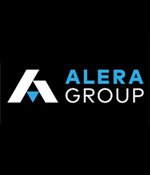News
The Latest Carrier Updates, Legal Alerts, Industry News and more.
Anthem Gag Clause Attestation, Health Net COVID-19 Testing Benefit Changes, SHARP Health Plan Bonus Program, Legal Alerts, Updates, News & More
Thursday, November 21 2024

Carrier Updates
Group health plans and issuers are required to submit an attestation each year to confirm compliance with the prohibition on gag clauses. Anthem will file the Gag Clause Prohibition Compliance Attestation on behalf of your fully insured and administrative services only (ASO) clients before the December 31, 2024 deadline. The Consolidated Appropriations Act (CAA) gag clause provision prohibits group health plans and health insurance issuers offering group health insurance coverage from entering into an agreement between a plan or issuer and a healthcare provider, network or association of providers, third-party administrator, or another service provider offering access to a network of providers that would directly or indirectly restrict a plan or issuer from disclosing or accessing certain price and quality information. Group health plans and issuers are required to submit an attestation each year to confirm compliance with the prohibition on gag clauses. We will file the Gag Clause Prohibition Compliance Attestation on behalf of your fully insured and administrative services only (ASO) clients before the December 31, 2024, deadline. For your reference, the following statement is our confirmation of compliance with the provision for the business and information that we administer and maintain. Anthem represents that the administrative services provided under its Administrative Services agreements are consistent with the requirements set forth in Section 201 of the Consolidated Appropriations Act, 2021. To Learn More Click Here For More Information or Help Quotiing Anthem, Please Contact Your Dickerson Sales Rep.

Carrier Updates
In mid-September Health Net notified members about changes to COVID-19 benefits that began November 12, 2023. The implementation of the COVID-19 benefit changes for high deductible health plans were delayed. The following changes for HDHPs will become effective 01/01/2025. Non-Grandfathered HDHP PPO plans (Group and Ambetter plans) The member letter stated that for COVID-19 vaccines, members must meet the plan deductible before coverage begins. To clarify: COVID-19 vaccines received from an out-of-network provider will be subject to plan benefits. No prior approval is required. Subject to plan deductible. COVID-19 vaccines received from an in-network provider remain at no cost to the member. No prior approval is required. Deductible waived. For COVID-19 testing and therapeutics, the letter clarifies the following: COVID-19 testing and therapeutics received from an out-of-network provider will be subject to plan benefits. No prior approval is required. Subject to plan deductible. COVID-19 testing and therapeutics received from an in-network provider remain at no cost to you. No prior approval is required. Subject to plan deductible According to Federal requirements, for plan years ending after December 31, 2024, HDHPs may no longer waive cost-share requirements. This includes the deductible for COVID-19 testing and treatment or for out-of-network COVID-19 vaccines if the enrollee has not yet satisfied the HDHP deductible. For More Information or Help Quoting Health Net, Please Contact Your Dickerson Sales Rep.

Carrier Updates
You can earn more with SHARP's new broker bonus program. When you enroll new small group business with effective dates of 10/1/24, 11/1/24, 12/1/24 and 1/1/25, you’ll earn big with their tiered bonus program. With some of the lowest small group rates in the market, making it easy for San Diegans to get the high-quality care and service they deserve. Total Number of Employees Enrolled from 10/1 to 1/1 Bonus for Each Employee Enrolled 10-19 $50 20-29 $75 30-39 $100 40-49 $125 50-74 $150 75+ $200 For More Information or Help Quoting SHARP, Please Contact Your Dickerson Sales Rep.

Industry News
(Nov 8) As the United States looks to 2025 and the inauguration of President Donald Trump, employers that sponsor employee benefit plans might be wondering what changes related to health benefits in America could be on the horizon. Although the President-elect has not issued in-depth policy proposals, we can look to his past administration’s efforts to influence healthcare, as well as to what was said during the election cycle, to glean ideas of what could be the next administration’s key issues. President-elect Trump has touted his successes from 2016-2020 on lowering drug prices and has promised to stop COVID-19 mandates, end surprise medical billing, increase fairness through price transparency, lower prescription drug costs and health insurance premiums, protect patients with pre-existing conditions and protect Medicare. Historically, President-elect Trump has been a proponent of Medicare Advantage. During the past Trump administration, there was significant emphasis on price transparency, and we can expect that to continue into this term. There is always potential for further scrutiny on pharmacy benefit manager (PBM) companies that serve as intermediaries in the U.S. health system for drug pricing, formularies, claims processing and more. Additional regulations relating to hospital pricing transparency could be on the horizon as well, as a continuation of efforts from the first Trump administration. President-elect Trump’s past administration made strides to loosen regulations relating to the formation and implementation of association health plans, or AHPs. The regulations issued during his past term were revoked during the Biden-Harris administration, but this could be a topic that is revisited in the coming years. AHPs are seen by some as a more effective way for small businesses to purchase health benefits for employees, while others remain concerned about the fraud that had plagued AHPs prior to the strict regulations that were implemented beginning in 1983. To Read More Click Here

Industry News
(Nov 19) By Matthew Gibbs - Have you ever wondered about the journey your medication takes before it’s ready for pickup at your local pharmacy, or before it arrives at your door? It’s easy to assume the transfer is somewhat simple — that it leaves the manufacturer, travels through a distribution network, and arrives at its final destination. But the reality of the journey is much more complicated, and it’s a big reason why drug prices are increasingly unaffordable for so many patients and families. Multiple players and processes are involved between the time a drug is produced to the moment it lands in your hands. Your doctor will prescribe a drug, your health plan will authorize its coverage, and your pharmacy will dispense the medication. These are critical and expected pieces of the puzzle. But an invisible entity you rarely interact with has much more control over the price and process than most people realize: the pharmacy benefit manager, or PBM. These behind-the-scenes businesses play a significant role in dictating which medications you can access, how much you end up paying for them, and even which pharmacies you can use to pick up your prescriptions. Some PBMs even pressure you to use the pharmacies that they own, especially for home delivery of medications. All of that adds up to an outsized impact on your finances, your health and ultimately, how your prescription drug coverage impacts you. In the span of a few short decades, PBMs' market power has signficantly increased and become a major obstacle to fairness and value in the pharmacy care journey. This challenge is one reason why Blue Shield of California set out to transform pharmacy care through an innovative new model designed to make medications more affordable for our members. But what are PBMs, exactly? Let’s walk through their role in the healthcare system, how that role has evolved over the years, and the impact they have on millions of American healthcare consumers every day. To Read More Click Here